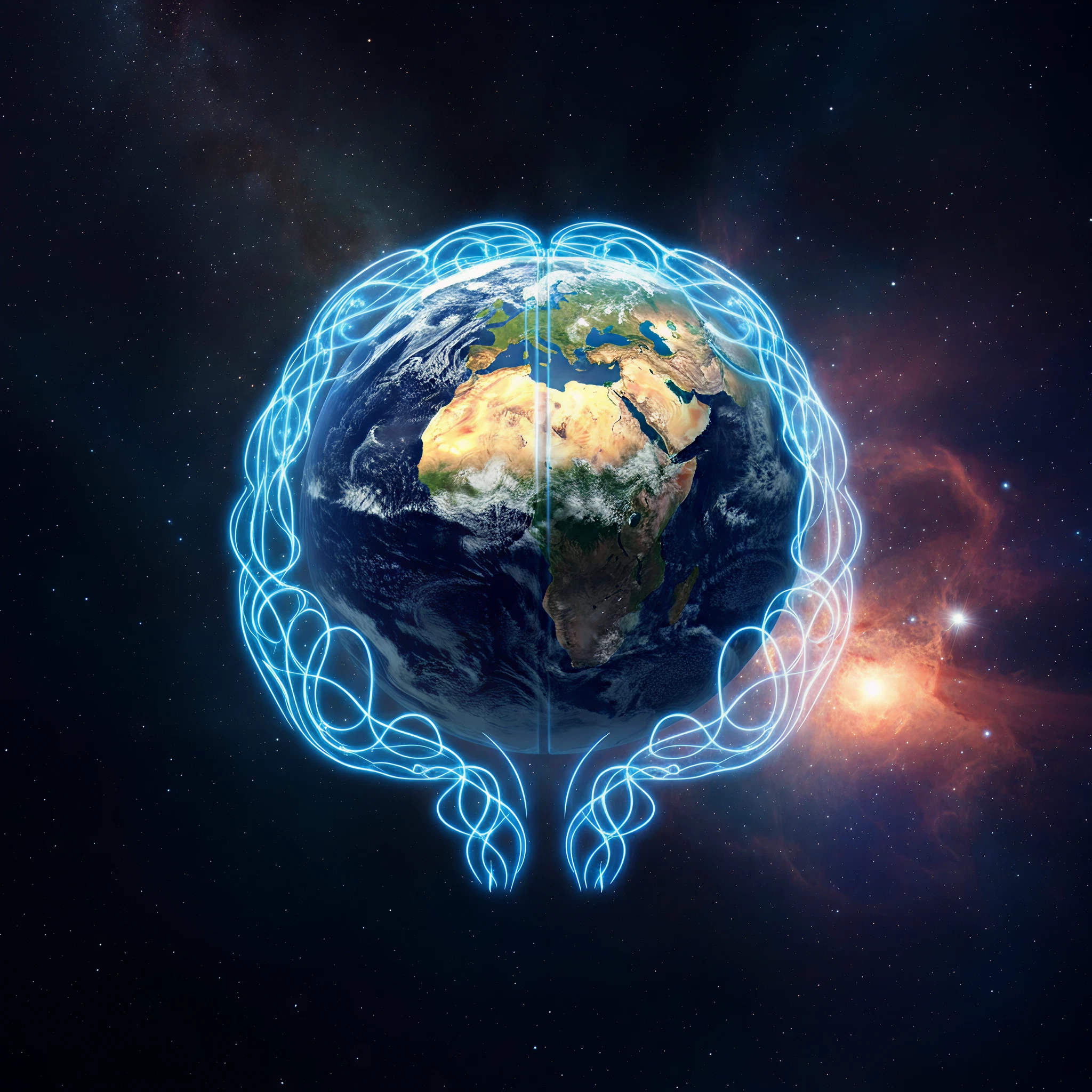Could our planet function like an interconnected brain? As conversations around the Gaia Hypothesis and planetary intelligence grow, the idea of Earth as a “thinking entity” is becoming more than just science fiction. Let’s explore how Earth’s ecosystems and technologies could represent a planetary-scale mind and what it means for our place in the universe.
Understanding the Gaia Hypothesis
Coined by scientist James Lovelock and co-developed with Lynn Margulis, the Gaia Hypothesis posits that Earth’s ecosystems function as a single self-regulating organism. It suggests that everything—from microbes in the soil to atmospheric CO2 levels—is interconnected, working together to keep the planet habitable.
For example, tropical forests regulate local rainfall and global temperatures, while marine life influences the oceans’ chemical balance. This synergy ensures survival. It’s as if Earth “knows” how to adapt and sustain itself, albeit unconsciously—for now.
But what if these organic systems could evolve from unconscious processes into a state of global intelligence?
Could Earth Have a Neural Network?
One theory gaining traction asks whether Earth’s interconnected systems, paired with human advancements, could function like a planetary-scale neural network.
Think of ecosystems as information processors. Mushrooms like mycorrhizal fungi already act as “communication hubs” in forests, distributing resources and signaling danger to trees. This “Wood Wide Web” mirrors the neural connections in a brain.
Similarly, human innovations like the technosphere (digital networks connecting nations, businesses, and supply chains) add a layer of complexity to Earth’s “thinking capacity.” Geoscientist Peter Haff introduced this term to describe the vast web of human-made technologies—from data servers to fiber optics—that connect billions of people.
Over time, such interconnected systems could evolve into a cohesive intelligence capable of processing information at a planetary level.
Ecosystems as Information Processors
Nature has already demonstrated forms of collective intelligence. Consider how ant colonies operate efficiently without a central authority. Ants use pheromones to communicate, manage resources, and accomplish complex tasks collectively. Similarly, ecosystems like coral reefs or forest ecosystems demonstrate a capacity to share and adapt information in response to environmental changes.
If ecosystems are natural processors of information, it’s worth asking whether humanity’s technologies could help these systems work smarter. AI, for example, could amplify this processing, linking ecosystems into super-sophisticated networks of sustainability.
Collective Intelligence Transformed by AI
Artificial intelligence could serve as a catalyst in creating a globally intelligent system. Unlike human decision-making processes, which are often slow and influenced by conflicting interests, AI analyzes massive datasets and draws efficient conclusions.
For instance, AI might:
- Predict and neutralize environmental disasters by synthesizing data from weather patterns and tectonic activity.
- Accelerate solutions for climate change by optimizing renewable resource usage.
- Improve food distribution networks by balancing agricultural output with global demand.
This paints a picture of a potential earth-scale intellect that could proactively protect its ecosystems—and us.
The Bigger Picture
A “thinking” Earth raises intriguing ethical and philosophical questions.
- Would humans remain in control, or would we become subordinate to a higher planetary intelligence?
- Could humanity act as Earth’s “neurons,” feeding it data and innovation while benefiting from its global problem-solving abilities?
The answers remain speculative, but regardless of whether Earth can “think,” it’s clear we are part of a deeply interconnected system.
Look at Earth with New Eyes
Whether Gaia Hypothesis remains metaphorical or evolves into reality, understanding how Earth’s systems work together enriches our appreciation for the planet. It also underscores the importance of sustainable technology, inspired by the balance and intelligence that nature already offers.
What’s your take on this fascinating concept? Share your thoughts in the comments below. And the next time you marvel at a forest or coral reef, remember you’re witnessing nature’s intelligence at work.








